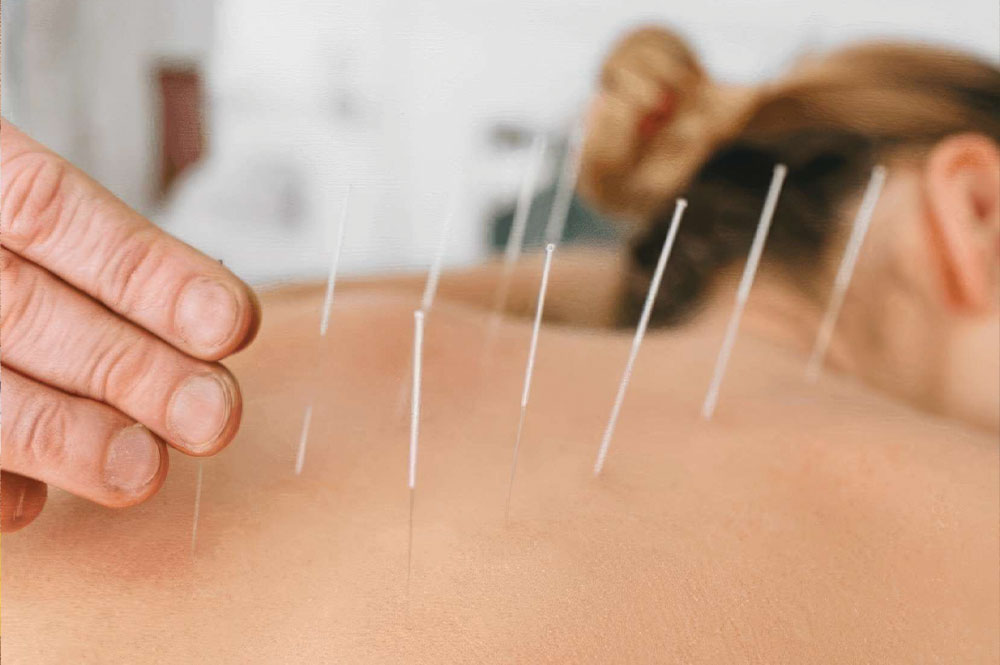Acupuncture
Contact us
for an appointment
Call us at +30 6981 299 120 or fill out the form, and we will contact you.

Acupuncture is a medical technique with analgesic and therapeutic effects for various diseases and disorders. It is a non-pharmacological therapeutic method, which can be considered part of Traditional Chinese Medicine. However, in recent years, due to its effectiveness for certain conditions, it has become the subject of study and research in many Western medical centers to understand its mechanism of action.
Medical acupuncture refers to the application of acupuncture as an independent or complementary treatment according to Western medical thought by specially trained physicians. The selection of cases is made according to the guidelines of the World Health Organization.
The design of therapeutic protocols is a result of a combination of specific guidelines based on numerous medical studies and the experience of the treating physician. Each treatment is individualized, as it is designed according to the characteristics and severity of the disease or disorder.
Very thin, single-use needles, which do not contain any pharmaceutical substance, are placed in specific areas of the body based on the case, and they remain there for approximately 15-20 minutes.
A therapeutic protocol involves the selection of the points where the needles are placed, the duration of their stay in the body, the number of sessions, the frequency, the use of electrical stimulation through electroacupuncture, etc.
Usually, between 6 and 15 sessions are required, depending on the case, with a frequency of 2 times per week. Acupuncture has a cumulative effect, so its results are typically evaluated after the 4th to 6th session.
More specifically, the main actions of acupuncture are as follows:
- Vasculoprotective: Regulating blood circulation and ensuring the proper nourishment of organs.
- Myorelaxant: Reducing muscle fiber tone.
- Analgesic: Through the production of specific neurotransmitters (endorphins, enkephalins, dynorphins, catecholamines).
- Anxiolytic and Antidepressant: Through its action on the limbic system, the cerebral cortex, and its overall regulatory action due to the production of various neurotransmitters (endorphins, serotonin, GABA, etc.) related to mental functions.
- Anti-inflammatory: Through the production of anti-inflammatory substances.
- Regulatory: Of the immune and endocrine systems (homeostasis) through its action on the neuro-endocrine-immune axis.
Therefore, the above actions of acupuncture ensure a significant analgesic and therapeutic effect for many diseases and disorders. However, careful history-taking and evaluation of each case by the treating physician are necessary for the correct selection of cases requiring acupuncture treatment.
Indications
Acute and Chronic Pain: Cervicalgia, thoracalgia, lumbalgia, lumbosacral sciatica, coccydynia, extra-articular syndromes (epicondylitis, bursitis, tendinitis), arthralgia, osteoarthritis, myofascial pain, acute musculoskeletal pain, post-operative pain relief, kidney colic, neuropathic pain, post-herpetic neuralgia, fibromyalgia, temporomandibular joint pain, chronic pelvic pain, etc.
Rehabilitation: Management of chronic pain syndromes, entrapment syndromes, overuse syndromes, cerebrovascular accidents, etc.
Neurological Problems: Migraine, tension headache, trigeminal neuralgia, peripheral facial nerve paralysis, hemiplegia, vertigo, etc.
Dermatological Issues: Acne, psoriasis, eczema, neurodermatitis, urticaria.
Gastrointestinal Problems: Gastritis, ulcers, esophageal spasms, nausea and vomiting, dyspepsia, epigastralgia, constipation, irritable bowel syndrome, etc.
Cardiovascular Issues: Neurogenic arrhythmias, idiopathic hypertension, etc.
Urological Issues: Dysuria, nocturnal enuresis, kidney colic, sexual dysfunctions, neurogenic bladder, etc.
Pulmonary Issues: Bronchial asthma, bronchitis, hyperreactive bronchial syndrome, chronic obstructive pulmonary disease (COPD), etc.
Gynecological Problems: Menstrual disorders, amenorrhea, dysmenorrhea, polycystic ovarian syndrome, premenstrual syndrome, menopausal symptoms, pelvic pain, hyperemesis gravidarum, labor induction, painless labor, infertility, etc.
Allergological Issues: Allergic asthma, allergic rhinitis, urticaria, etc.
Otorhinolaryngological Problems: Sinusitis, tinnitus, vasomotor rhinitis, hearing loss, sudden deafness, vertigo, nausea, dizziness, etc.
Psychiatric and Psychosomatic Issues: Mild depression, anxiety disorders, sleep disorders, cyclothymia, phobias, panic attacks, chronic fatigue syndrome, neurogenic disorders, anxiety, etc.
Miscellaneous: Appetite suppression, withdrawal symptoms (from smoking/alcohol), antiemetic action (after chemotherapy, post-surgery, pregnancy, travel nausea), etc.

